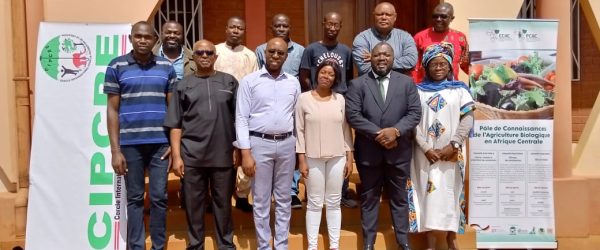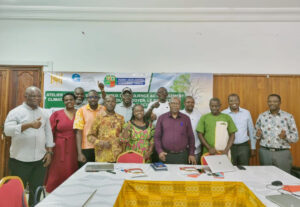The five (5) actors (Inades-Formation Cameroun, CIPCRE, CPF, GADD, and SAILD) who promote organic farming in Cameroon, in partnership with the German cooperation BMZ, met on March 27 and 28 in Bafoussam in the framework of a workshop for the elaboration of the monitoring, evaluation and vision strategy of the CCAB (Centre de connaissance de l’Agriculture Biologique en Afrique Centrale).
The headquarters of CIPCRE (International Circle for the Promotion of Creation) in Bafoussam hosted from Monday 27 to Tuesday, March 28, 2023, the workshop to develop the strategy for monitoring, evaluation and vision of the Knowledge Center of Organic Agriculture in Central Africa (CCAB).
During this workshop, the overall aim was to harmonize the understanding of the strategy document’s content among the members of the cluster; to encourage the contribution of the representatives of the partner organizations present in order to help improve the content Develop relevant monitoring and evaluation tools for the implementation of activities in accordance with the CCAB results matrix and seek the opinions of the various implementing partners on the relevance of the proposed draft strategy, in order to validate or invalidate it.
The program of this two-day workshop included the presentation of the context, the review of the CCAB/PCAC mandate and several exchanges on the CCAB results matrix and the CCAB monitoring-evaluation system and vision. The representatives of the different organizations grouped by output/component of the project led reflections on the content of the monitoring strategy document, the evaluation and the vision of the Central Africa cluster in relation to the CCAB project.
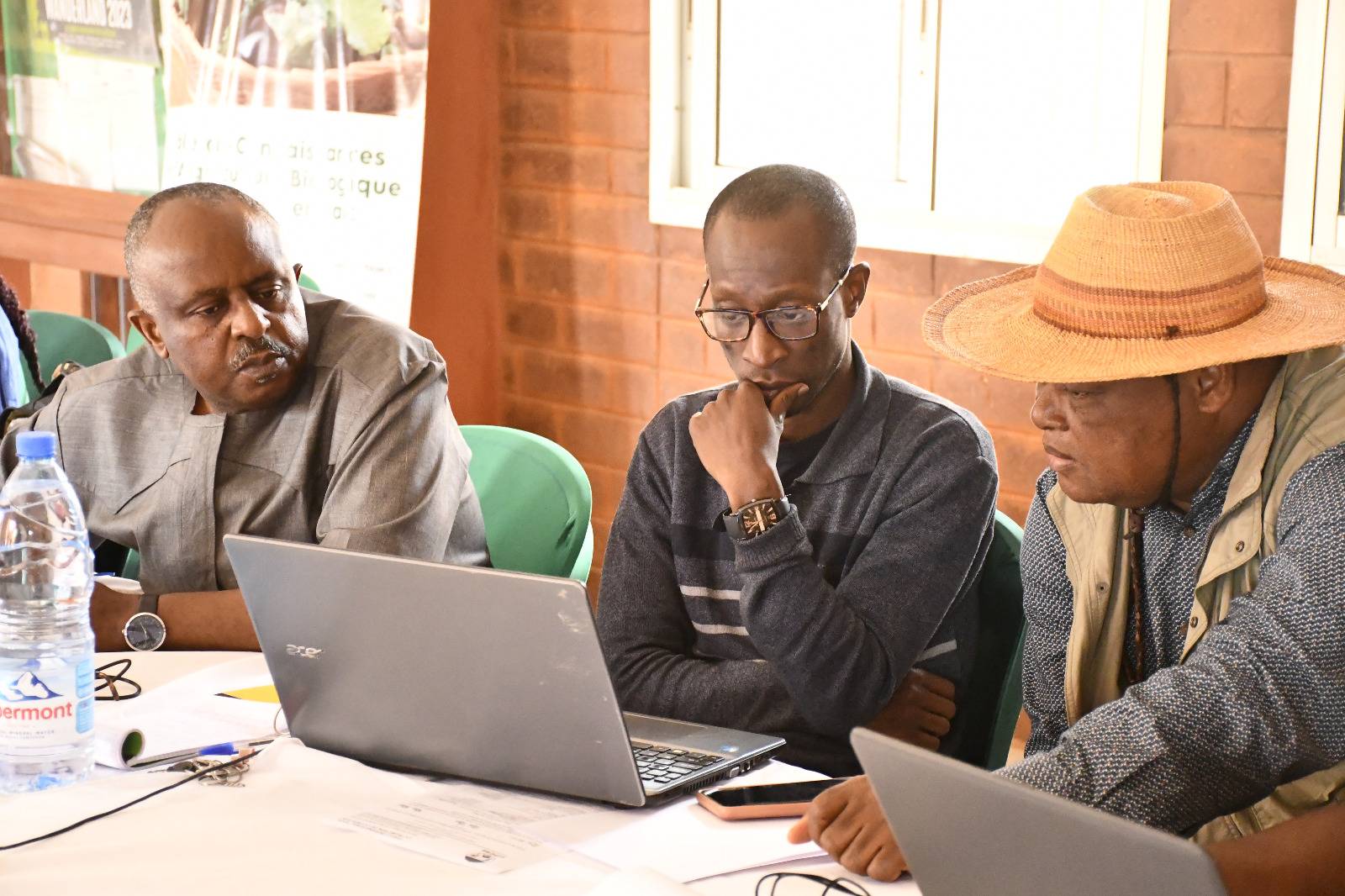 A view of the reflections of the participants in the networking output subgroup.
A view of the reflections of the participants in the networking output subgroup.
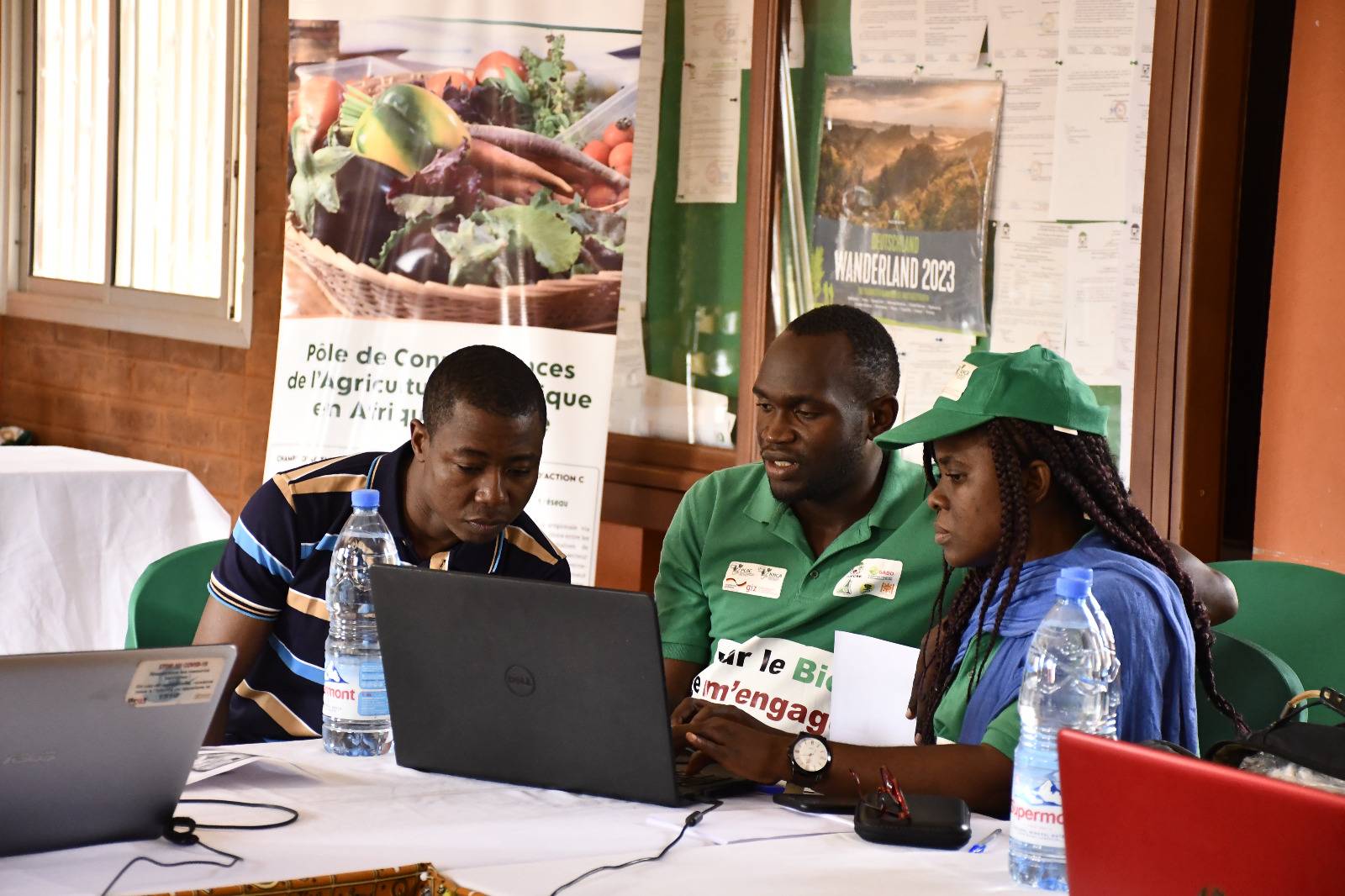 Output Product Dissemination Knowledge
Output Product Dissemination Knowledge
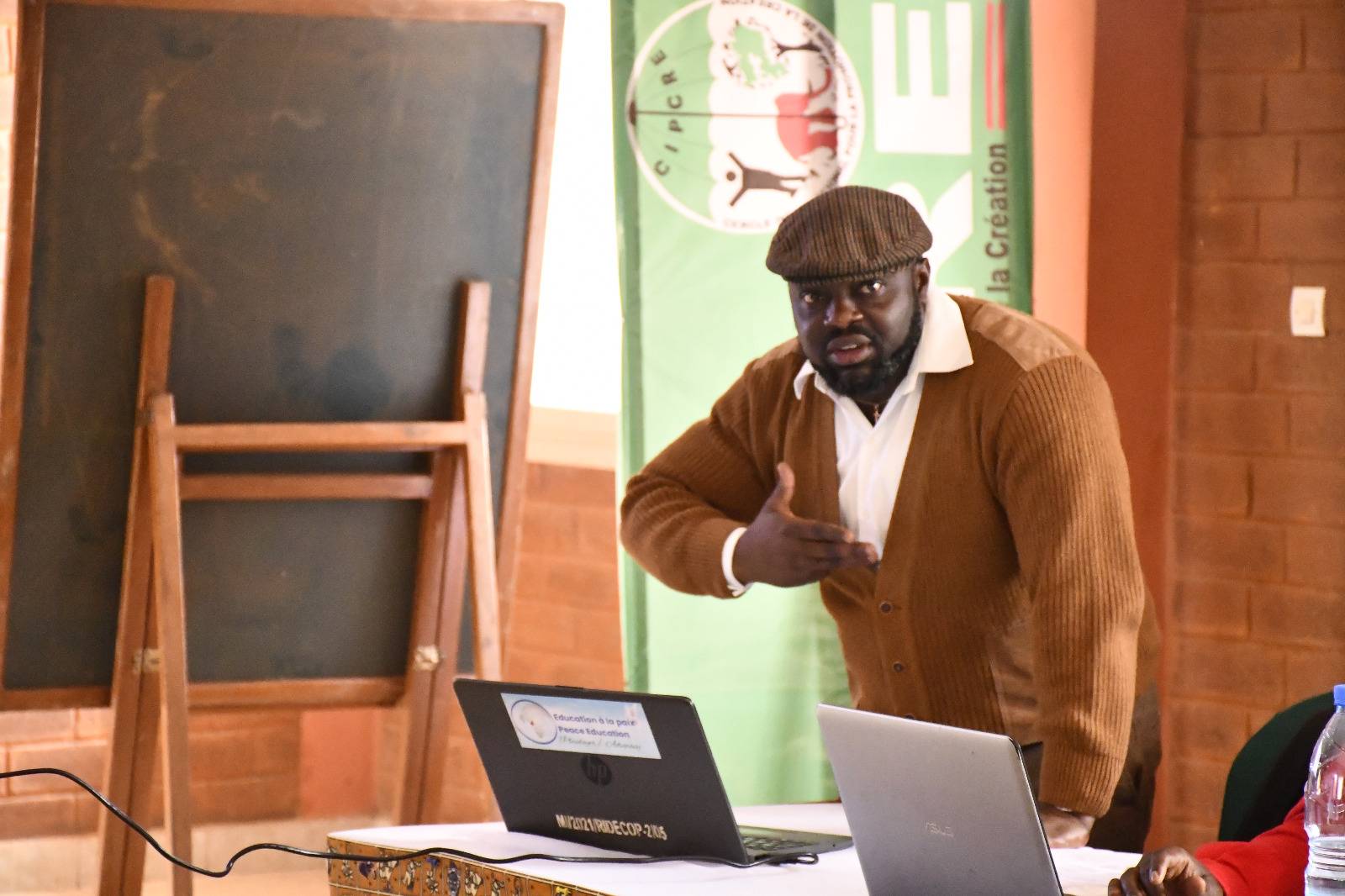 A view from a representative of the Extrant sub-focus group collecting knowledge products.
A view from a representative of the Extrant sub-focus group collecting knowledge products.Each of the Outputs (project components) has developed its presentation on a specific policy. Thus, at the level of the Extrant knowledge productcollection, it was a question of designing some collection tools. The work of the Knowledge Products Dissemination Output focused on the development of dissemination tools. The Networking output has designed some networking tools. Mr. Léopold SIKATI, coordinator of the monitoring and evaluation unit at CIPCRE and facilitator of the workshop told us his feelings at the end of the workshop ” I really appreciate the initiative of this workshop because it gave us a number of tools. I came out really satisfied with the exchange. This meeting allowed to harmonize the understanding on the content and to elaborate an improved and consensual draft of the monitoring-evaluation strategy and the KCOA vision for the cluster, which will be very favorable for the effective implementation of the project activities “he said.
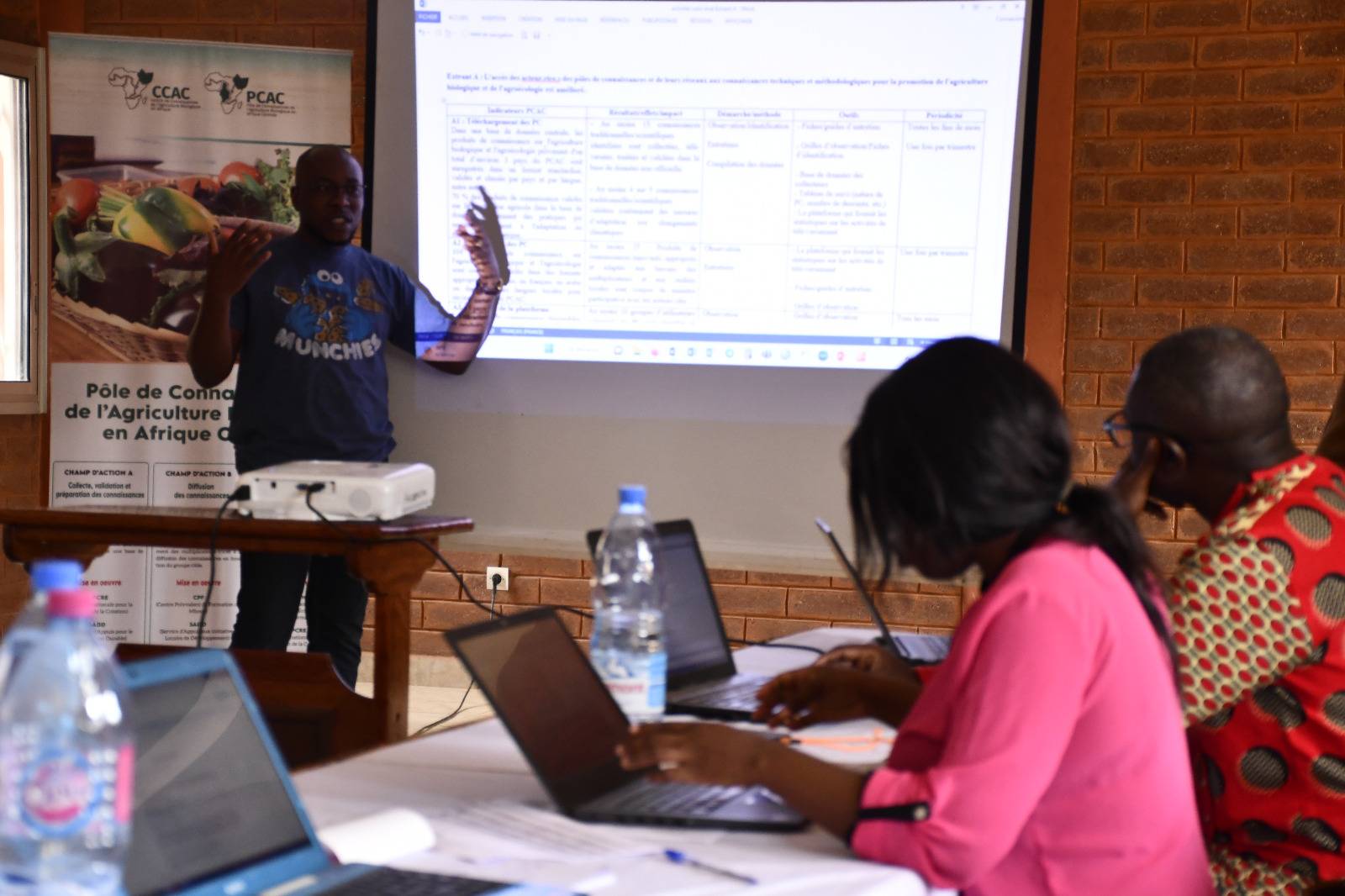 Mr. Léopold SIKATI; workshop facilitator.
Mr. Léopold SIKATI; workshop facilitator.
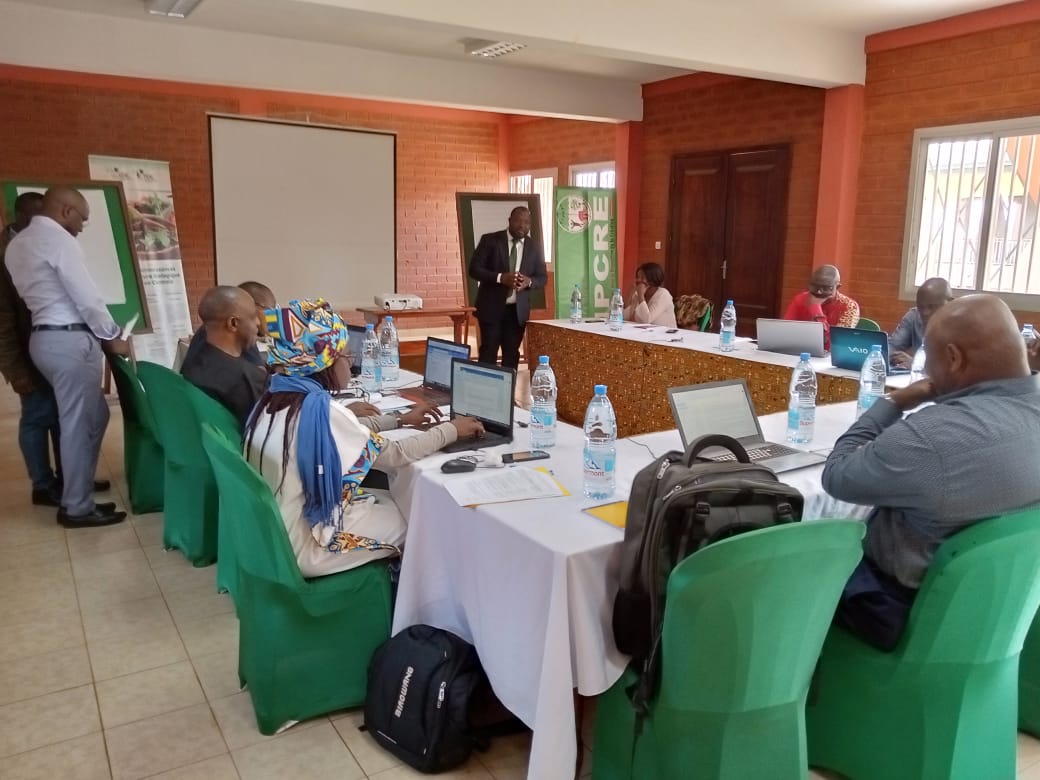 Mathieu FOKA, Regional Knowledge Management Focal Point
Mathieu FOKA, Regional Knowledge Management Focal Point
The workshop resulted in the design and joint development of several tools for the harmonization of the monitoring and evaluation of the various project implementation partners. This includes survey forms, questionnaires, time sheets, etc.
Marguerite MOMHA, Communication Inades-Formation Cameroon.

